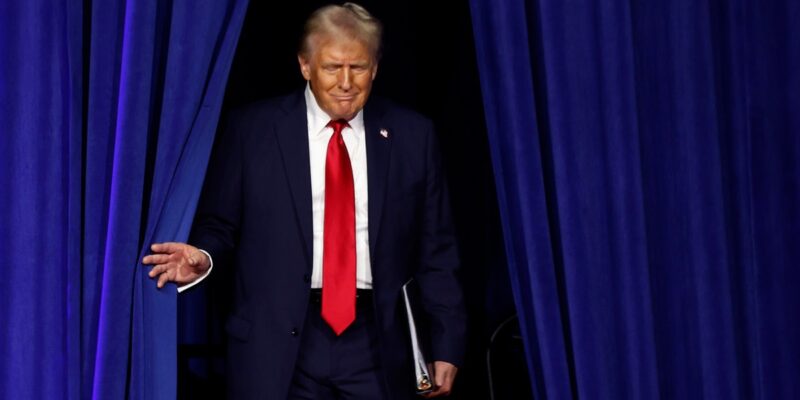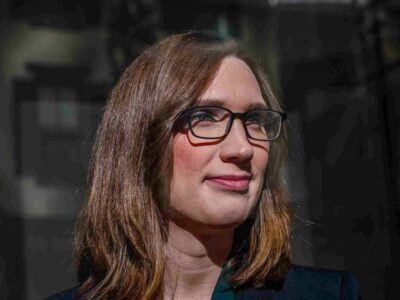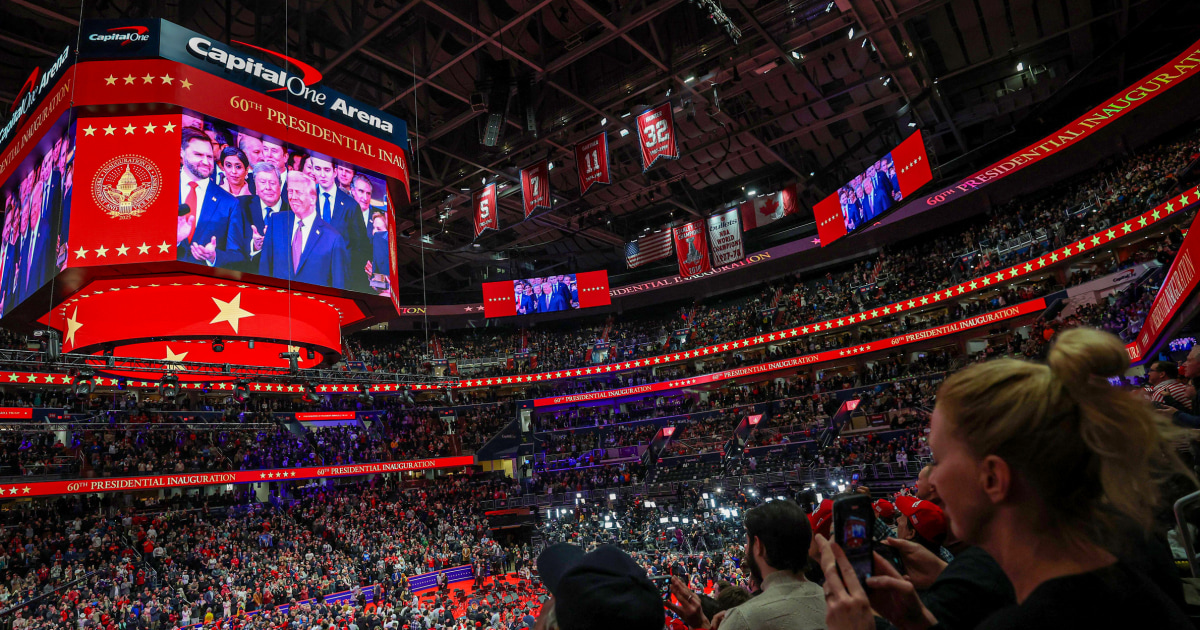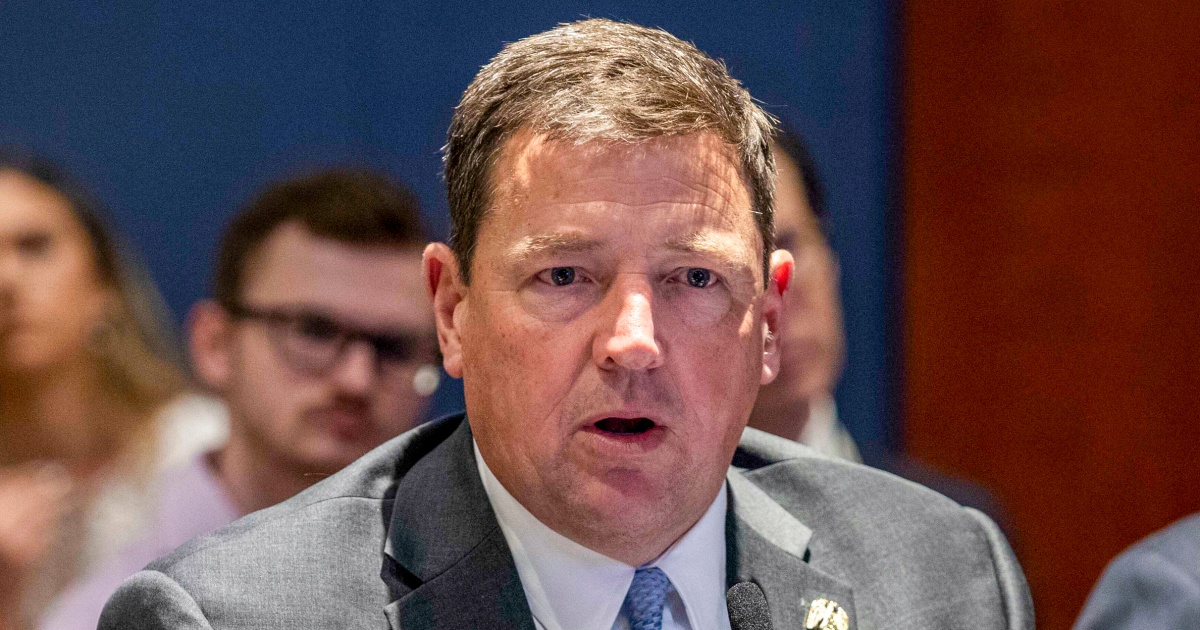
President-elect Donald Trump is building his second administration at a breakneck speed, announcing his choices for nearly all of the roughly two dozen top-tier nominations, including Cabinet posts, earlier than he did when starting his first term. It’s a sign not only that Trump’s team has more experience than it did in 2016, but also that it has a much more defined sense of what it wants: loyalty.
The expedited pace, however, has not come without setbacks and intrigue. Trump has long skipped the careful vetting of the backgrounds and financial records of potential picks that most incoming administrations undertake. This approach has led to surprise controversies and unexpected bumps for some of his more contentious choices.
Trump has “botched up the nomination process pretty bad,” a Republican senator said, adding, “They clearly aren’t vetting these people.”
There’s also extensive jockeying between influential voices like Trump’s sons Donald Trump Jr. and Eric Trump, and other transition staffers, including chief of staff Susie Wiles.
“It’s like ‘Game of Thrones’ over there. I think Don Jr. has been trying to do things at times. It’s like Susie will have a meeting and then Don Jr. will say something else,” a transition source said, who said they were not implying there’s any tension between the two, just that there are big personalities on the team. “Some of it has been kind of weird.”
Trump Jr.’s most overt influence to date was felt in his negative feedback of former Secretary of State Mike Pompeo for another administration role. Pompeo is now disliked by much of the MAGA base and faced direct pushback from Trump’s eldest child.
This account of the Trump transition effort is based on interviews with a dozen people familiar with or involved in the process. Many were granted anonymity to speak candidly or because they were not authorized to speak on the record.
“President Trump was re-elected by a resounding mandate from the American people to change the status quo in Washington. That’s why he has chosen brilliant and highly-respected outsiders to serve in his Administration, and he will continue to stand behind them as they fight against all those who seek to derail the MAGA Agenda,” Trump transition spokeswoman Karoline Leavitt said in a statement. “Alongside his highly-qualified nominees, President Trump will shatter the Deep State and restore government that is controlled by the people.”
Though many of Trump’s nominees appear poised for relatively easy confirmation, some of his highest-profile picks have become bogged down in controversy; two have already withdrawn their names from consideration, and others — most notably Pete Hegseth, Trump’s pick for defense secretary — may not have the votes to be confirmed. Trump also changed his mind and announced a new pick for White House counsel.
For his first administration, Trump lost just one nominee. And even those who are moving forward this time have been the subject of, at times, internal fights among longtime Trump loyalists, family members and the newest — perhaps biggest — influence: tech billionaire Elon Musk.
“I think he is around Musk more than anyone else,” a Trump ally familiar with the transition said. “There are several of the traditional sort of transition tensions and fighting over picks, but Musk casts a huge shadow.”
Musk, who poured more than $250 million into helping Trump get elected, is not only co-chairing the new Department of Government Efficiency, or DOGE — a nongovernmental entity that has promised to make $2 trillion in cuts to the federal budget — but he has also been a prominent voice on key picks, most notably Kash Patel, Trump’s pick to be FBI director. Patel is a vocal backer who has spread baseless “deep state” conspiracy theories, calling for the purge of perceived Trump enemies from within the FBI and to “shut down” the bureau’s Washington headquarters on his first day in office.
“Elon was the principal guy behind Patel,” the Trump ally said. “He is a big reason he ultimately got picked.”
During Trump’s first transition process, there was a tug of war between his MAGA movement and those seen as more traditional Republicans. This time, that’s less the case. Not only are the voices in the president-elect’s ear all generally philosophically aligned, but also Trump himself is taking a much more hands-on approach.
“Now he is coming in with a much clearer vision,” the Trump ally said. “He has been in the job, so he knows exactly what the job is. And you know the No. 1 thing he wants is loyalty and competence.”
Another Trump ally, who notoriously views fighting among staff and decision-makers as a positive rather than a negative, said the president-elect is getting involved in more than just top-tier appointments.
“He is not just interested in who the Cabinet secretaries are, but also looking at who the deputy secretary candidates are, as well as the assistant secretary candidates,” the person said.
- Trump’s children won’t have White House roles in his second term
- Trump isn’t president yet, but that hasn’t stopped him from starting to act like he is
- Some of the biggest pro-Trump donors of 2024 are lining up for administration jobs
- Trump’s pick for FBI director promoted bogus supplements to ‘reverse’ vaccines
- Pete Hegseth’s drinking worried colleagues at Fox News, sources tell NBC News
Part of the strategy has been to avoid “unforced errors or distractions” by keeping potential nominees largely offline and away from television interviews.“I think you’re seeing the campaign discipline translate to the transition,” a transition source said.
Among the most heated Cabinet fights is the one over Hegseth. The former Fox News host and Army National Guard veteran has been meeting with Republican senators over the past week in an attempt to alleviate concerns over allegations of drinking and his treatment of women.
For many Trump supporters, the Hegseth nomination has become a litmus test for how loyal Republicans, specifically those in the Senate who would have to vote to confirm him, are to the president-elect’s pledge to install people who will fundamentally remake key swaths of the federal government.
Trump and his allies have already promised primary challengers for senators who do not vote to confirm Hegseth, including skeptics like Sen. Joni Ernst, R-Iowa, who is a member of the Armed Services Committee and a veteran. MAGA adherents have turned their wrath on Ernst, believing that she wants the job for herself — even though she has not indicated so publicly.
“People in Iowa have a well-funded primary challenger ready against her,” Charlie Kirk, founder of the influential conservative group Turning Point USA, wrote on social media. “Her political career is in serious jeopardy.”
Hegseth has been defiant and pledged to keep fighting, and Trump has continued to back him, posting as recently as Friday morning that he “is doing very well.”
But the Hegseth drama has spun off its own political intrigue, as a shortlist of potential replacements has been publicly discussed, including Ernst, Tennessee Sen. Bill Hagerty, former Trump administration Pentagon official Elbridge Colby, Texas Rep. Wesley Hunt and most surprisingly, Florida Gov. Ron DeSantis.
The DeSantis chatter has caught particular attention because he had an intense political rivalry with Trump during the 2024 Republican presidential primary and has a history of bad blood with several Trump staffers, including Wiles, who ran his 2018 gubernatorial campaign before the two had a falling out.
“We have all advised him on the pros and cons here, and I think given him good advice,” a Trump official said. “But at the end of the day, if he can get over it, why can’t we.”
The emergence of DeSantis’ name has also stirred up potential considerations for the 2028 presidential race. DeSantis is likely to once again consider a run for the White House, which many anticipate would put him on a collision course with Vice President-elect JD Vance, who is also expected to consider a run and would likely try to tap into the same pool of Trump voters DeSantis would need.
Trump’s transition team brushed off any concerns that potentially nominating DeSantis as defense secretary could elevate his presidential prospects.
“Ron is not a full [Trump] convert, but he has a little star power, and that’s something the president likes. There is media value there,” a person involved in the transition said. “And if we pull him in and hug him tight, he’s part of our administration. He could not run against our administration.”
“Then it becomes a personality test,” the person added. “JD wins that 100% of the time.”
The highest-profile defeat to date for Trump was around former Florida Rep. Matt Gaetz to be attorney general. Gaetz withdrew his name from consideration after it became clear an investigation into allegations of sex trafficking and sex with a minor would prevent him from getting enough votes to be confirmed. Gaetz was never charged and has denied the allegations.
Six hours after Gaetz withdrew late last month, Trump nominated former two-term Florida Attorney General Pam Bondi, a longtime ally, as his replacement. Bondi’s pick prompted some pushback over her past comments about prosecuting prosecutors who came after Trump, but she is widely considered to be a pick who will be able to secure Senate confirmation.
Bondi did play an influential role in suggesting the other Trump pick who has withdrawn his name — Tampa-area Sheriff Chad Chronister, who was the president-elect’s choice to lead the Drug Enforcement Administration, according to two sources familiar with the decision.
Last week, Chronister posted on social media that he was pulling his name “as the gravity of this very important responsibility set in,” a claim quickly undercut by Trump himself. In his own post, Trump pointed to how Chronister handled the coronavirus pandemic, including a 2020 decision to arrest a Tampa-area pastor who flouted pandemic-era lockdown orders.
“He didn’t pull out,” Trump said. “I pulled him out, because I did not like what he said to my pastors and other supporters.”
Even some nominations that have received relatively little attention have been the subject of internal jockeying.
Trump’s son-in-law Jared Kushner, who is not expected to have a formal role in a second administration, advocated for private equity executive Marc Rowan to be nominated for treasury secretary, four sources told NBC News, but Trump instead chose hedge fund executive Scott Bessent.
But the speed at which things are moving and, at times, complicating some of Trump’s nominations is part of an aggressive strategy that is by design.
“Trump is in a pretty aggressive mode of trying to shove the system as hard and as fast as he can,” said former House Speaker Newt Gingrich, a staunch ally. “If 5% do not make it, he would regard that as a reasonable price for being as daring as he is and he will get 95%.”
“He is being Trump!” Gingrich continued. “That is the guy that got to be president despite everything.”















